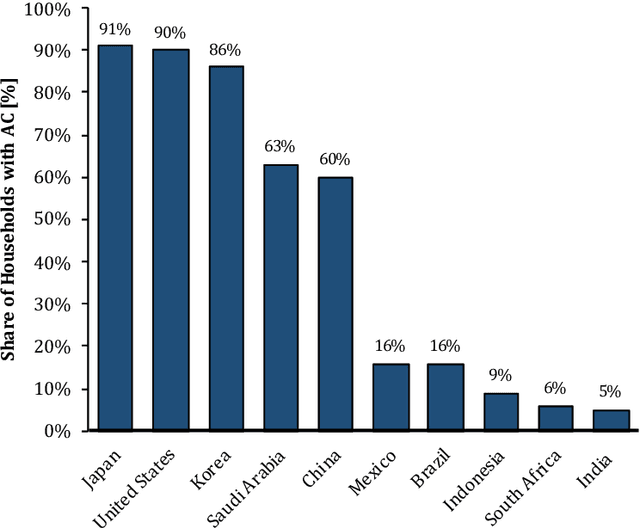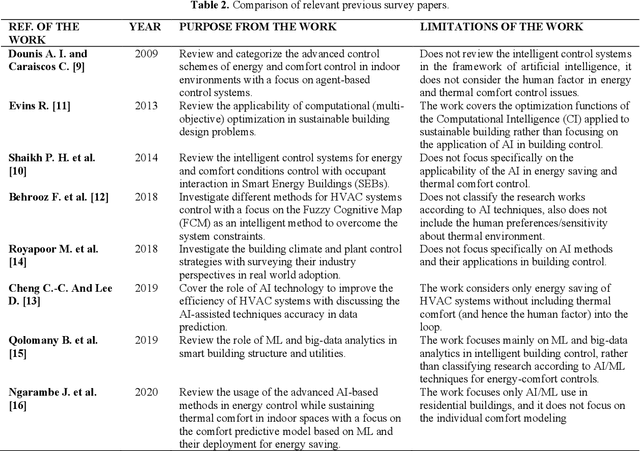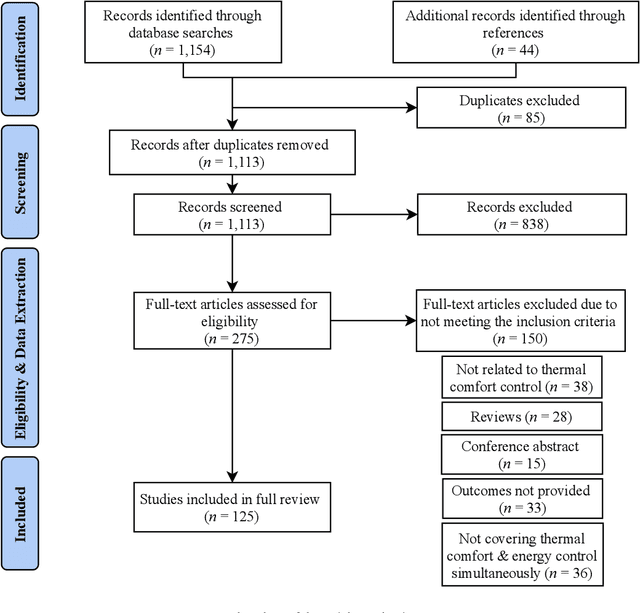Mohamed Essaaidi
Intelligent Building Control Systems for Thermal Comfort and Energy-Efficiency: A Systematic Review of Artificial Intelligence-Assisted Techniques
Apr 06, 2021



Abstract:Building operations represent a significant percentage of the total primary energy consumed in most countries due to the proliferation of Heating, Ventilation and Air-Conditioning (HVAC) installations in response to the growing demand for improved thermal comfort. Reducing the associated energy consumption while maintaining comfortable conditions in buildings are conflicting objectives and represent a typical optimization problem that requires intelligent system design. Over the last decade, different methodologies based on the Artificial Intelligence (AI) techniques have been deployed to find the sweet spot between energy use in HVAC systems and suitable indoor comfort levels to the occupants. This paper performs a comprehensive and an in-depth systematic review of AI-based techniques used for building control systems by assessing the outputs of these techniques, and their implementations in the reviewed works, as well as investigating their abilities to improve the energy-efficiency, while maintaining thermal comfort conditions. This enables a holistic view of (1) the complexities of delivering thermal comfort to users inside buildings in an energy-efficient way, and (2) the associated bibliographic material to assist researchers and experts in the field in tackling such a challenge. Among the 20 AI tools developed for both energy consumption and comfort control, functions such as identification and recognition patterns, optimization, predictive control. Based on the findings of this work, the application of AI technology in building control is a promising area of research and still an ongoing, i.e., the performance of AI-based control is not yet completely satisfactory. This is mainly due in part to the fact that these algorithms usually need a large amount of high-quality real-world data, which is lacking in the building or, more precisely, the energy sector.
Artificial Intelligence-Assisted Energy and Thermal Comfort Control for Sustainable Buildings: An Extended Representation of the Systematic Review
Jun 22, 2020Abstract:Discussion of the environmental impact of buildings has been gaining weight in the agendas of a number of cities and countries around the world. Indeed, approximately 38% of the final energy consumption growth between 2015 and 2050 in the world is correlated to the use and occupation of buildings. In this regard, the building sector was identified as a leading contributor to global production of CO2 in the fifth report produced by the International Panel of Climate Change (IPCC). However, the same report also has identified this sector as the one with the greatest potential for reducing CO2 emissions through design opportunities, technological advances, and user behavior. Nowadays, research has been directed towards more advanced control structures that take multiple inputs (temperature, humidity, comfort sensation, etc.) and uses artificial intelligence (AI) techniques for heating, ventilation, and air-conditioning (HVAC) control, design, management, optimization, and maintenance. This paper performs a systematic review in order to investigate the use of AI-based tools for improving the performance of energy control systems and enhance thermal comfort. This enables a holistic understanding of (1) the challenges of providing thermal comfort to the users inside buildings in an energy efficient way, and (2) the related bibliographic material to help researchers and professionals in the area undertaking such a challenge. Compared to existing reviews, this paper extends the state of the art by reviewing and categorizing all existing publications and providing the material related to the AI-assisted tools for building environment control while considering a dynamic interaction within comfort-subject-energy control loop.
 Add to Chrome
Add to Chrome Add to Firefox
Add to Firefox Add to Edge
Add to Edge